Martin Luther King - I Have A Dream Speech - August 28, 1963
When we let freedom ring, when we let it ring from every village and every hamlet, from every state and every city, we will be able to speed up that day when all of God's children, black men and white men, Jews and Gentiles, Protestants and Catholics, will be able to join hands and sing in the words of the old Negro spiritual, "Free at last! free at last! Thank God Almighty, we are free at last!"

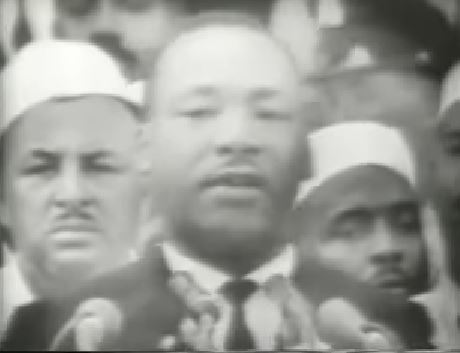
Martin Luther King Jr I Have A Dream speech with text
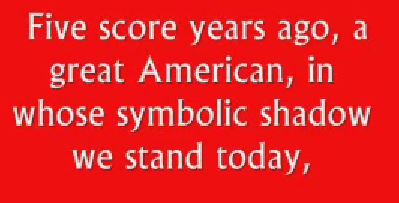
Students remember 'I have a dream' speech
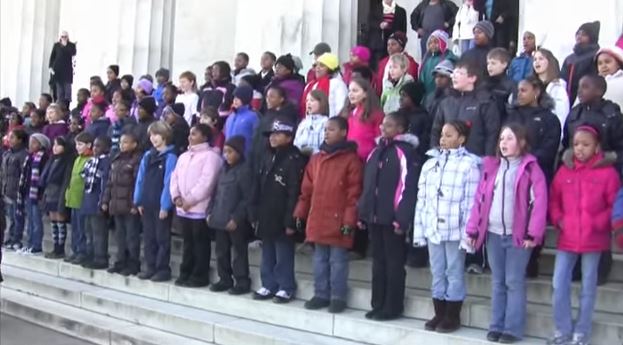
Martin Luther King Jr. (January 15, 1929 – April 4, 1968) was an American Baptist minister, activist, humanitarian, and leader in the African-American Civil Rights Movement.
He is best known for his role in the advancement of civil rights using nonviolent civil disobedience based on his Christian beliefs.
On October 14, 1964, King received the Nobel Peace Prize for combating racial inequality through nonviolence.


BBC Face to Face Martin Luther King Jr Interview (1961)
.JPG)
Martin Luther King Jr. Nobel Peace Prize Acceptance Speech
Only his physical body left us but, his words, thoughts, ideology are always with us to make us move forward.
This man was sent by God his speech touched my heart
One of the greatest men ever to walk this earth. We were so blessed to have had him here with us.
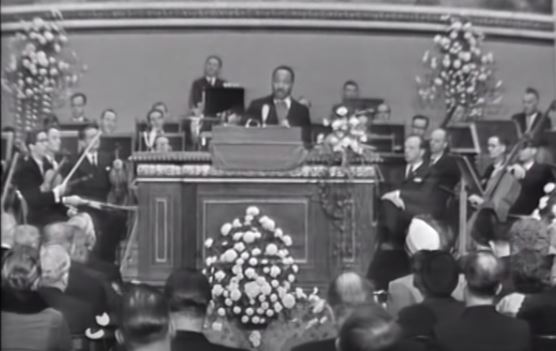
Martin Luther King Interview- Civil Rights (Merv Griffin Show 1967)
Here is an expanded and newly transferred version of Merv's interview with Dr. Martin Luther King, Jr. We recently discovered the lost master tape of this show and we've had it newly transferred.
This is stunning quality compared to what we had earlier and we're thrilled to have found the original master and that this important piece of American history is now preserved in pristine condition.
Kudos to DC Video in L.A. for their stellar work. In this segment, Dr. King shares with Merv his take on the then-current state of the Civil Rights movement in America. Merv Griffin had over 5000 guests appear on his show from 1963-1986. Footage from the Merv Griffin Show is available for licensing to all forms of media through Reelin' In The Years Productions. www.reelinintheyears.com.
.JPG)
MLK Talks 'New Phase' Of Civil Rights Struggle, 11 Months Before His Assassination | NBC News
In 1967, at the Ebenezer Baptist Church in Atlanta, Georgia, Martin Luther King spoke with NBC News' Sander Vanocur about the "new phase" of the struggle for "genuine equality."
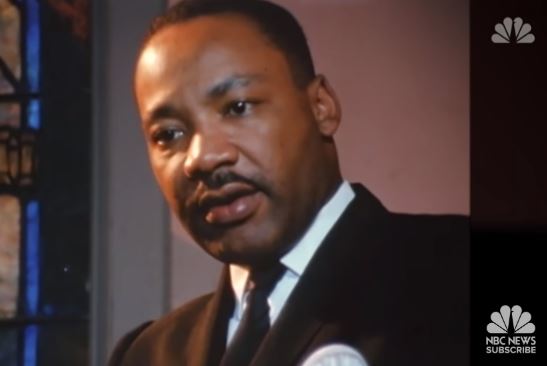
Dr. King is assassinated
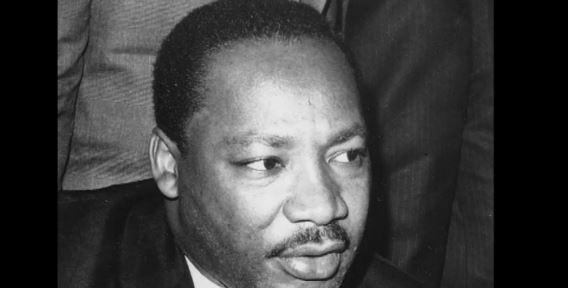
Just after 6 p.m. on April 4, 1968, Martin Luther King, Jr. is fatally shot while standing on the balcony outside his second-story room at the Lorraine Motel in Memphis, Tennessee.
The civil rights leader was in Memphis to support a sanitation workers’ strike and was on his way to dinner when a bullet struck him in the jaw and severed his spinal cord. King was pronounced dead after his arrival at a Memphis hospital. He was 39 years old.
In the months before his assassination, Martin Luther King became increasingly concerned with the problem of economic inequality in America. He organized a Poor People’s Campaign to focus on the issue, including a march on Washington, and in March 1968 traveled to Memphis in support of poorly treated African-American sanitation workers.
On March 28, a workers’ protest march led by King ended in violence and the death of an African American teenager. King left the city but vowed to return in early April to lead another demonstration.
On April 3, back in Memphis, King gave his last sermon, saying, “We’ve got some difficult days ahead. But it really doesn’t matter with me now, because I’ve been to the mountaintop … And He’s allowed me to go up to the mountain. And I’ve looked over, and I’ve seen the Promised Land. I may not get there with you. But I want you to know tonight that we, as a people, will get to the promised land.”
READ MORE: 10 Things You May Not Know About Martin Luther King, Jr.
One day after speaking those words, Dr. King was shot and killed by a sniper. As word of the assassination spread, riots broke out in cities all across the United States, and National Guard troops were deployed in Memphis and Washington, D.C.
On April 9, King was laid to rest in his hometown of Atlanta, Georgia. Tens of thousands of people lined the streets to pay tribute to King’s casket as it passed by in a wooden farm cart drawn by two mules.
The evening of King’s murder, a Remington .30-06 hunting rifle was found on the sidewalk beside a rooming house one block from the Lorraine Motel. During the next several weeks, the rifle, eyewitness reports, and fingerprints on the weapon all implicated a single suspect: escaped convict James Earl Ray. A two-bit criminal, Ray escaped a Missouri prison in April 1967 while serving a sentence for a holdup.
In May 1968, a massive manhunt for Ray began. The FBI eventually determined that he had obtained a Canadian passport under a false identity, which at the time was relatively easy.
On June 8, Scotland Yard investigators arrested Ray at a London airport. He was trying to fly to Belgium, with the eventual goal, he later admitted, of reaching Rhodesia. Rhodesia, now called Zimbabwe, was at the time ruled by an oppressive and internationally condemned white minority government. Extradited to the United States, Ray stood before a Memphis judge in March 1969 and pleaded guilty to King’s murder in order to avoid the electric chair.
He was sentenced to 99 years in prison.
Three days later, he attempted to withdraw his guilty plea, claiming he was innocent of King’s assassination and had been set up as a patsy in a larger conspiracy.
He claimed that in 1967, a mysterious man named “Raoul” had approached him and recruited him into a gunrunning enterprise.
On April 4, 1968, he said, he realized that he was to be the fall guy for the King assassination and fled to Canada. Ray’s motion was denied, as were his dozens of other requests for a trial during the next 29 years.
READ MORE: Why Martin Luther King’s Family Believes James Earl Ray Was Not His Killer
During the 1990s, the widow and children of Martin Luther King Jr. spoke publicly in support of Ray and his claims, calling him innocent and speculating about an assassination conspiracy involving the U.S. government and military. U.S. authorities were, in conspiracists’ minds, implicated circumstantially.
FBI Director J. Edgar Hoover obsessed over King, who he thought was under communist influence. For the last six years of his life, King underwent constant wiretapping and harassment by the FBI.
Before his death, Dr. King was also monitored by U.S. military intelligence, which may have been asked to watch King after he publicly denounced the Vietnam War in 1967.
Furthermore, by calling for radical economic reforms in 1968, including guaranteed annual incomes for all, King was making few new friends in the Cold War-era U.S. government.
Over the years, the assassination has been reexamined by the House Select Committee on Assassinations, the Shelby County, Tennessee, district attorney’s office, and three times by the U.S. Justice Department.
The investigations all ended with the same conclusion: James Earl Ray killed Martin Luther King. The House committee acknowledged that a low-level conspiracy might have existed, involving one or more accomplices to Ray, but uncovered no evidence to definitively prove this theory.
In addition to the mountain of evidence against him–such as his fingerprints on the murder weapon and his admitted presence at the rooming house on April 4–Ray had a definite motive in assassinating King: hatred.
According to his family and friends, he was an outspoken racist who informed them of his intent to kill Dr. Martin Luther King, Jr. He died in 1998.
Citation Information
The Reverend Martin Luther King, Jr., head of the Southern Christian Leadership Conference, delivers a speech entitled “Beyond Vietnam” in front of 3,000 people at Riverside Church in New York City. In it, he says that there is a common link forming between the civil rights and peace movements.
King proposed that the United States stop all bombing of North and South Vietnam; declare a unilateral truce in the hope that it would lead to peace talks; set a date for withdrawal of all troops from Vietnam; and give the National Liberation Front a role in negotiations.
King had been a solid supporter of President Lyndon B. Johnson and his Great Society, but he became increasingly concerned about U.S. involvement in Vietnam and, as his concerns became more public, his relationship with the Johnson administration deteriorated. King came to view U.S. intervention in Southeast Asia as little more than imperialism.
Additionally, he believed that the Vietnam War diverted money and attention from domestic programs created to aid the black poor. Furthermore, he said, ‘the war was doing far more than devastating the hopes of the poor at home…We were taking the black young men who had been crippled by our society and sending them eight thousand miles away to guarantee liberties in Southeast Asia which they had not found in southwest Georgia and East Harlem.'”
King maintained his antiwar stance and supported peace movements until he was assassinated on April 4, 1968, one year to the day after delivering his Beyond Vietnam speech.
Martin Luther King Jr. is shot to death at a hotel in Memphis, Tennessee. A single shot fired by James Earl Ray from over 200 feet away at a nearby motel struck King in the neck. He died an hour later at St. Joseph’s Hospital. The death of America’s leading civil rights advocate ...read more
peace movements. King proposed that the United States stop all bombing of North and South Vietnam; declare a unilateral truce in the hope that it would lead to peace talks; set a date for withdrawal of all troops from Vietnam; and give the National Liberation Front a role in negotiations.
King had been a solid supporter of President Lyndon B. Johnson and his Great Society, but he became increasingly concerned about U.S. involvement in Vietnam and, as his concerns became more public, his relationship with the Johnson administration deteriorated. King came to view U.S. intervention in Southeast Asia as little more than imperialism. Additionally, he believed that the Vietnam War diverted money and attention from domestic programs created to aid the black poor. Furthermore, he said, ‘the war was doing far more than devastating the hopes of the poor at home…We were taking the black young men who had been crippled by our society and sending them eight thousand miles away to guarantee liberties in Southeast Asia which they had not found in southwest Georgia and East Harlem.'”
King maintained his antiwar stance and supported peace movements until he was assassinated on April 4, 1968, one year to the day after delivering his Beyond Vietnam speech.
peace movements. King proposed that the United States stop all bombing of North and South Vietnam; declare a unilateral truce in the hope that it would lead to peace talks; set a date for withdrawal of all troops from Vietnam; and give the National Liberation Front a role in negotiations.
King had been a solid supporter of President Lyndon B. Johnson and his Great Society, but he became increasingly concerned about U.S. involvement in Vietnam and, as his concerns became more public, his relationship with the Johnson administration deteriorated. King came to view U.S. intervention in Southeast Asia as little more than imperialism.
Additionally, he believed that the Vietnam War diverted money and attention from domestic programs created to aid the black poor. Furthermore, he said, ‘the war was doing far more than devastating the hopes of the poor at home…We were taking the black young men who had been crippled by our society and sending them eight thousand miles away to guarantee liberties in Southeast Asia which they had not found in southwest Georgia and East Harlem.'”
King maintained his antiwar stance and supported peace movements until he was assassinated on April 4, 1968, one year to the day after delivering his Beyond Vietnam speech.
King Assassination: Background
In the last years of his life, Dr. King faced mounting criticism from young African American activists who favored a more confrontational approach to seeking change. These young radicals stuck closer to the ideals of the black nationalist leader Malcolm X (himself assassinated in 1965), who had condemned King’s advocacy of nonviolence as “criminal” in the face of the continuing repression suffered by African Americans.
As a result of this opposition, King sought to widen his appeal beyond his own race, speaking out publicly against the Vietnam War and working to form a coalition of poor Americans—black and white alike—to address such issues as poverty and unemployment.
In the spring of 1968, while preparing for a planned march to Washington to lobby Congress on behalf of the poor, King and other SCLC members were called to Memphis, Tennessee, to support a sanitation workers’ strike. On the night of April 3, King gave a speech at the Mason Temple Church in Memphis.
In his speech, King seemed to foreshadow his own untimely passing, or at least to strike a particularly reflective note, ending with these now-historic words: “I’ve seen the promised land. I may not get there with you. But I want you to know tonight, that we, as a people, will get to the promised land. And I’m happy tonight. I’m not worried about anything. I’m not fearing any man. Mine eyes have seen the glory of the coming of the Lord.”
In fact, King had already survived an assassination attempt in the shoe section of a Harlem department store on September 20, 1958. The incident only affirmed his belief in non-violence.
King Assassination Conspiracy
On June 8, authorities apprehended the suspect in King’s murder, a small-time criminal named James Earl Ray, at London’s Heathrow Airport. Witnesses had seen him running from a boarding house near the Lorraine Motel carrying a bundle; prosecutors said he fired the fatal bullet from a bathroom in that building. Authorities found Ray’s fingerprints on the rifle used to kill King, a scope, and a pair of binoculars.
On March 10, 1969, Ray pleaded guilty to King’s murder and was sentenced to 99 years in prison. No testimony was heard in his trial. Shortly afterward, however, Ray recanted his confession, claiming he was the victim of a conspiracy. The House Select Committee on Assassinations (who also investigated the assassination of JFK) maintained that Ray’s shot killed the king.
Ray later found sympathy in an unlikely place: Members of King’s family, including his son Dexter, who publicly met with Ray in 1977 and began arguing for a reopening of his case.
Though the U.S. government conducted several investigations into the trial—each time confirming Ray’s guilt as the sole assassin—controversy still surrounds the assassination.
At the time of Ray’s death in 1998, King’s widow Coretta Scott King (who in the weeks after her husband’s death had courageously continued the campaign to aid the striking Memphis sanitation workers and carried on his mission of social change through nonviolent means) publicly lamented that “America will never have the benefit of Mr. Ray’s trial, which would have produced new revelations about the assassination…as well as establish the facts concerning Mr. Ray’s innocence.”
Impact of the King Assassination
Though blacks and whites alike mourned King’s passing, the killing in some ways served to widen the rift between black and white Americans, as many blacks saw King’s assassination as a rejection of their vigorous pursuit of equality through the nonviolent resistance he had championed.
His murder, like the killing of Malcolm X in 1965, radicalized many moderate African American activists, fueling the growth of the Black Power movement and the Black Panther Party in the late 1960s and early 1970s.
King has remained the most widely known African American leader of his era, and the most public face of the civil rights movement, along with its most eloquent voice.
A campaign to establish a national holiday in his honor began almost immediately after his death, and its proponents overcame significant opposition—critics pointed to FBI surveillance files suggesting King’s adultery and his influence by Communists—before President Ronald Reagan signed the King holiday bill into law in 1983.